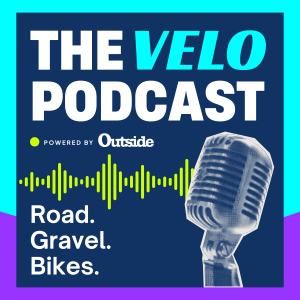
Fast Talk, ep. 101: Zones are a range, not a specific number
 2020-03-10
2020-03-10
Download
Right click and do "save link as"
We’re incredibly lucky here at Fast Talk to be able to talk with some of the most intelligent physiologists, coaches, and athletes about training, and sport science generally, on a weekly basis. We glean so much insightful information just by having access to them on a regular basis. Through Coach Connor’s countless hours of dedicated research to keep up on the latest science, we’re then able to synthesize all of this information into what we hope are digestible conversations, helping you to better understand the science that propels cycling performance.
Occasionally, we like to step back and summarize the things we’ve learned, often prompted by the many questions we receive from our dedicated listeners. Today is just such an occasion. The last time we did this type of show was Episode 68: The Big Picture-The Three Types of Rides You Should Do.
Today, we look at the big picture when it comes to training in zones, or ranges, versus training a target number.
Because what number is best? We talk about training zones constantly. If your zone 2 is 160 to 190 watts, then is training at 190 watts better than 170 watts? Is going harder better? Stay tuned for those answers.
Next, we’ll address four fundamental principles of human physiology that relate to training in ranges: specifically aerobic and anaerobic thresholds, fat burning capacity, and maximal lactate clearance. All in an effort to maximize your training experience.
Finally, we take an opportunity to remind everyone that humans aren’t machines. Perhaps that’s stating the obvious, but sometimes it’s good to remind ourselves that we are all individuals and have different needs, and goals for our riding.
Today we hear from a vast array of former Fast Talk guests, including:
-Colby Pearce, an incredible time trialist, coach, and bike fitting expert
-Dr. Stephen Seiler, one of the world’s leading sports physiologists
-Sepp Kuss, pro cyclist with Jumbo-Visma
-Toms Skujins, pro cyclist with Trek-Segafredo
-Dr. Andy Coggan and Dr. Stephen McGregor, leading exercise physiologists
-Hunter Allen, leading cycling coach
-Sebastian Webber, lead scientist at INSCYD and elite cycling coach
Let's make you fast!
view more
More Episodes
Everyone Loves to Hate the UCI Gravel Worlds
 2024-10-11
2024-10-11
 2024-10-11
2024-10-11
Is Gravel Racing as We Know It Over?
 2024-09-26
2024-09-26
 2024-09-26
2024-09-26
La Vuelta Wrap Up
 2024-09-13
2024-09-13
 2024-09-13
2024-09-13
La Vuelta and the 2024 Made Show
 2024-08-30
2024-08-30
 2024-08-30
2024-08-30
2024 Olympics
 2024-07-31
2024-07-31
 2024-07-31
2024-07-31
Tour de France Wrap Up
 2024-07-22
2024-07-22
 2024-07-22
2024-07-22
Tour de France Rest Day 2
 2024-07-15
2024-07-15
 2024-07-15
2024-07-15
Tour de France Rest Day Catch Up
 2024-07-08
2024-07-08
 2024-07-08
2024-07-08
Tour de France 2024 Preview
 2024-06-27
2024-06-27
 2024-06-27
2024-06-27
Velo Podcast - Unbound Gravel 2024
 2024-06-07
2024-06-07
 2024-06-07
2024-06-07
012345678910111213141516171819
Create your
podcast in
minutes
- Full-featured podcast site
- Unlimited storage and bandwidth
- Comprehensive podcast stats
- Distribute to Apple Podcasts, Spotify, and more
- Make money with your podcast
It is Free
- Privacy Policy
- Cookie Policy
- Terms of Use
- Consent Preferences
- Copyright © 2015-2024 Podbean.com



